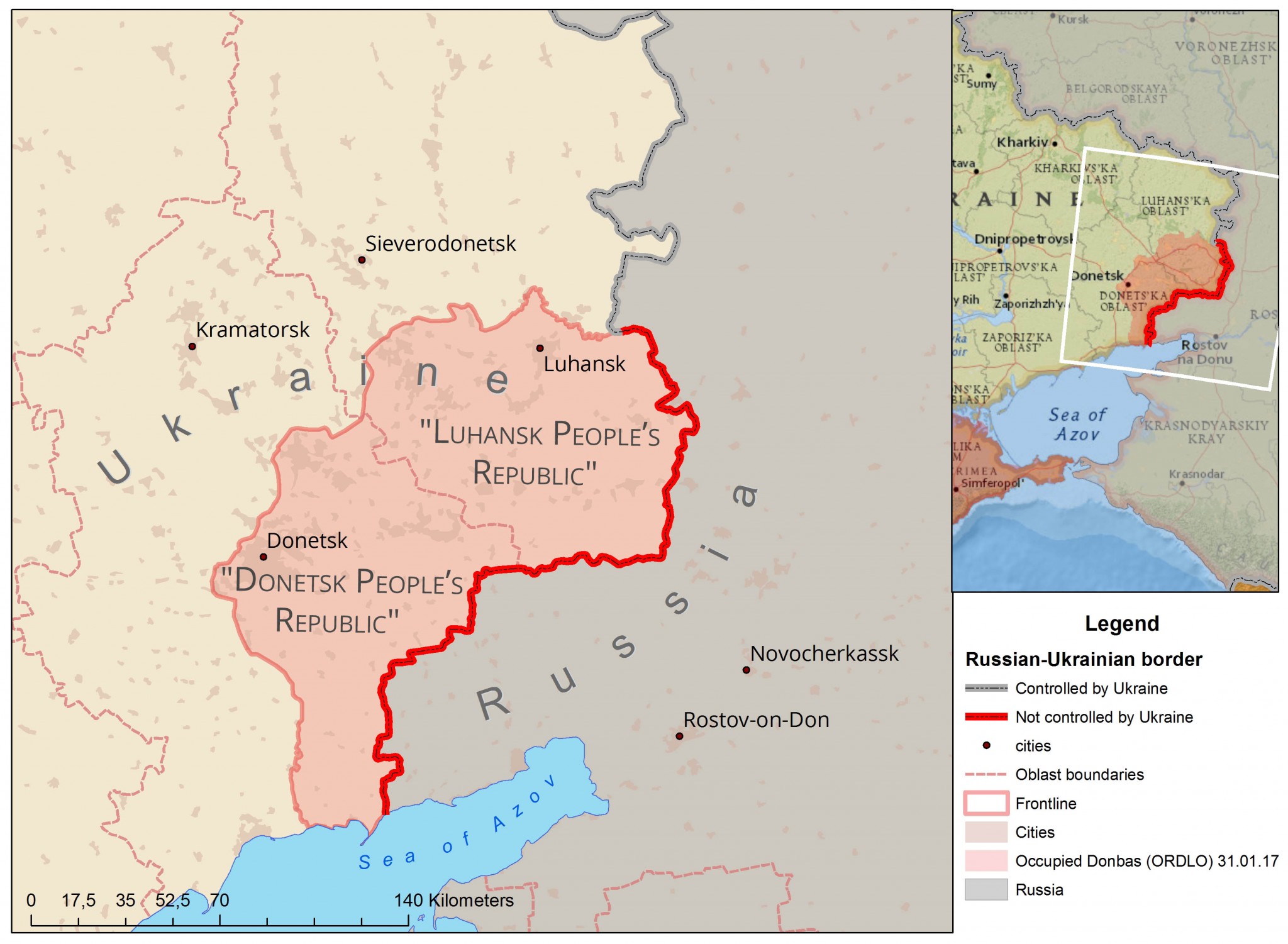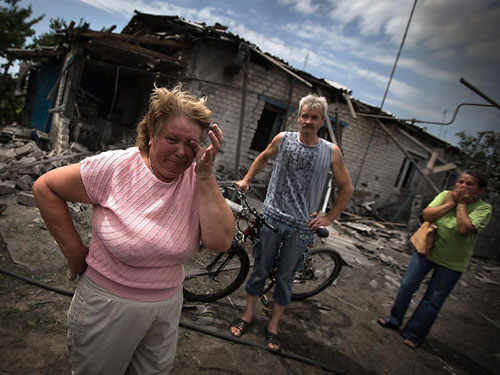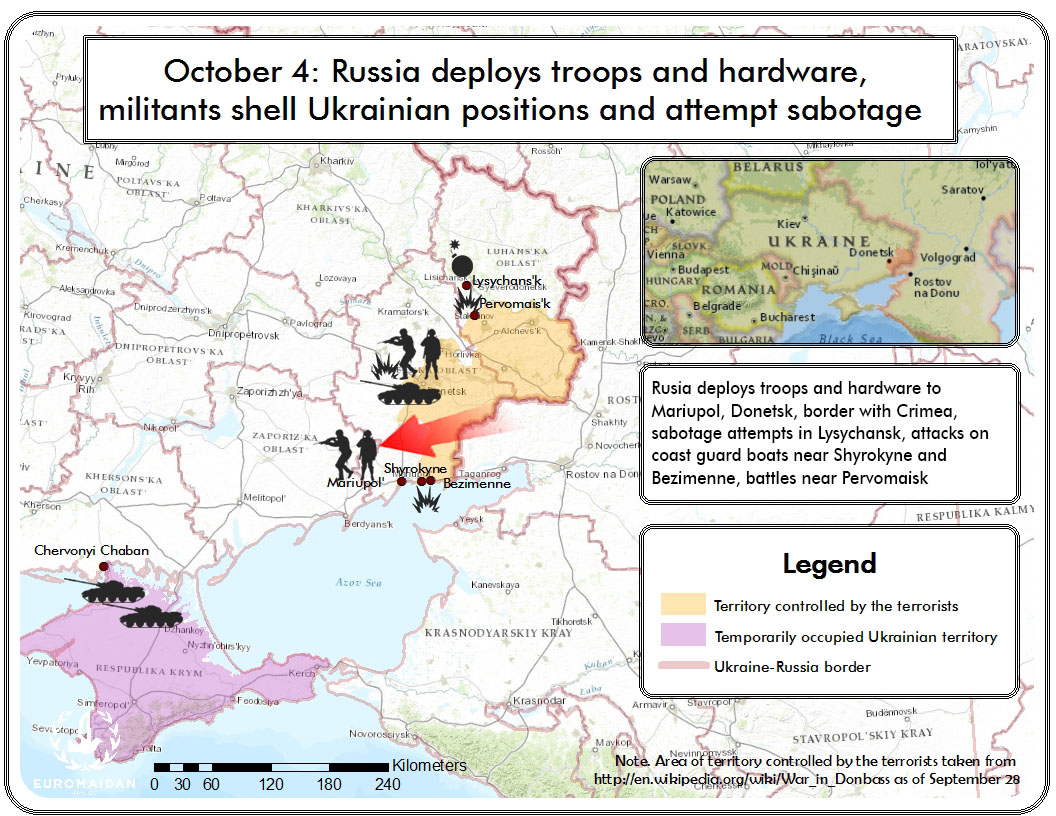Viktor Ageyev, the 22-year old Russian soldier detained in eastern Ukraine on 24 June 2017, confirmed that he was in active service with the Russian army, having been sent to eastern Ukraine after signing a contract for service in the Armed Forces of the Russian Federation.
Ageyev comes from Altai. In an interview to Ukrainian TV channel TSN aired on 9 July, Ageyev said he was a serviceman from the military unit #65246. This unit is located in Novocherkassk, a Russian city 50 km from the Ukrainian border near Rostov-on-Don, where a Signal Regiment and training center of the Russian Aerospace Forces is situated.
Ageyev and three others surrendered to Ukrainian forces during an ambush. The main prize of the special operation was supposed to be captain Aleksandr Shcherbak (callsign "Aleks"), a Russian officer who served as an instructor to the reconnaissance group. However, he and another soldier were killed after they opened fire. However, the detained Ageyev started naming his comrades and commanders from the so-called 4th brigade of the "Luhansk People's Republic," one of Russia's proxy states in Donbas.
Read also: Ukrainian army kills Russian officer, captures Russian contract soldier in Donbas
Over two weeks, Russia had denied that Ageyev is a Russian soldier on active duty, insisting that he was in Donbas on his own initiative after terminating his contract - a statement that Viktor's mother Svetlana denied while speaking to BBC. Andriy Tsapliyenko, a journalist with TSN, conducted an interview with Ageyev, in which the serviceman confessed that he was on duty in Ukraine as part of his contract with the Russian army, which he signed in March 2017 in his military unit in Novocherkassk from Russia's Rostov Oblast and revealed the scheme by which Russian servicemen from the Rostov Oblast are sent to occupied Donbas.
Why did Ageyev tell all this? Tsapliyenko supposes that it's because he understood that Russia has disowned him and doesn't have any qualms about sharing his full story. What follows is a slightly abridged translation of the interview Ageyev gave to TSN, done by Euromaidan Press.

We're going to contact your mother right now. Maybe you want to tell her something?
What can I say... Let her wait for me to come home. I hope I will come home soon.
Tell me of how you are being treated. What conditions are you being kept in?
They're not bad, it's like in prison. The food is OK. There's a bed. There's water and food.
Why did you arrive in Ukraine and start fighting for the "LNR"?
I am a serviceman. I probably will not be able to explain it.
At your age, people are usually not very interested in politics... Altai is far away from Ukraine. You have many photos of beautiful girls on VKontakte page - what people of your age are usually interested in... And yet you came here. What was the motivation?
To help the "Luhansk People's Republic."
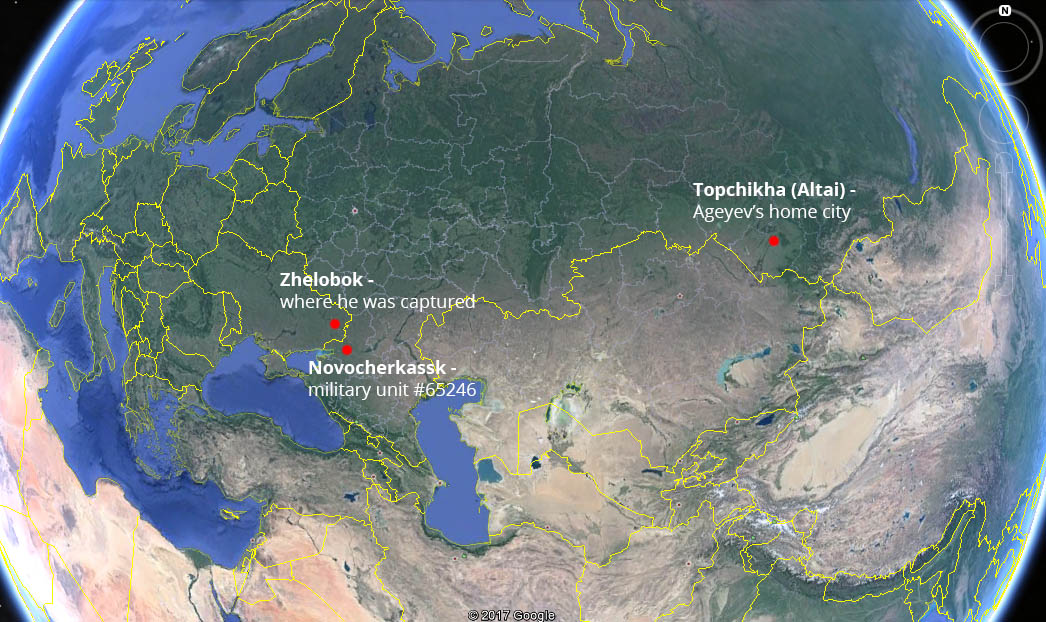
So you really believed that Ukrainians are such brutal, evil "banderites"?
Yes. They said so on TV.
And you believed in it?
Yes, many believe in it.
Has anything changed in your attitude while you were here in jail?
I just realized that everywhere people live basically the same. I probably won't be able to explain in detail.
I saw the first moment when the four of you were captured, and the conversation that followed. It appeared to me you were quite calm. How were you treated during your capture and how did this moment pass for you overall? Could you describe it?
It all happened unexpectedly. I just woke up, it was my time to be on duty. I went to the toilet behind the fence of the house. And it turned out that at that moment I looked to the right and there was a group standing 7-10 meters away. There were ten people. I had nowhere to escape, no weapons, nothing to grab. So they shouted: "Lie down! Where is your weapon?" I said I don't have any. They threw me to the ground, and called the rest of the guys. They said if the rest don't go out they would just kill me. Maybe the guys would have opened fire... Maybe they had pitied me. Everyone came out.
And two more? Instructor Shcherba [Russian instructor Alexander Shcherba, known as Alex - Ed.]? Did they come later?
Yes. They retreated with one KIA. When they returned, we were already taken away. But there was probably a group still left which defended the house. And they started to resist and were killed because there was a numerical advantage.
[...]
Let's return to the topic of your motivation to come here. A young man, 20 years old, suddenly goes a thousand kilometers away to Ukraine, about which he knows something from TV. All the Russians don't rush to fight here, right? But everybody watches TV. What prompted you to come here?
Probably patriotism. They talked about the local situation, that the fascists are bombing the local residents. There's a lot, I can't even recall it all.
And did they say on the television that Ukrainians are trying to destroy the Russian-speaking population?
No, I have not heard that.
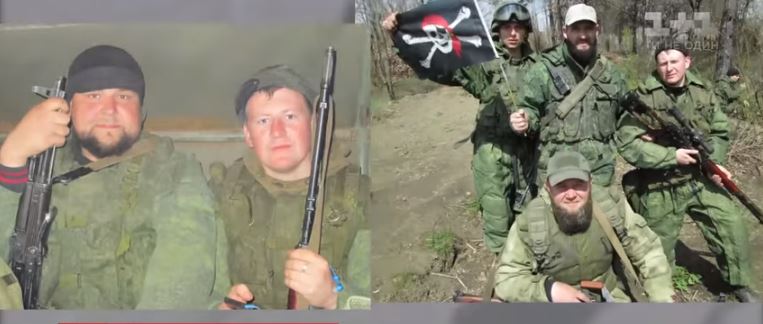
And who are these fascists? How did you imagine them?
Well, I could not really imagine them, because I never really encountered them.
You said the following thing: "I am in the military. I had to come." So someone told you that you have to go here? Did they give you a command? How did it happen?
You can say I made the decision myself. I wanted to go.
Did you ask permission in your unit?
Yes.
And what did you say?
That I can sign a contract already here in the "LNR" ["Luhansk People's Republic," Russia's proxy state in Donbas - Ed.] and serve here.
And this will count as a part of your service in Russia? Is it somehow different?
I do not know, I didn't ask for details.
Your mother says that after finishing your military service after being drafted, you tried to find yourself, but eventually went to serve in the 22nd brigade in Bataysk. Is that right?
Well, I wanted to, but it didn't happen.
And where did it happen?
In the same unit where I served.
This is also in the Rostov Oblast?
Yes.
And what is this unit?
The Air Force. When I was conscripted, we didn't perform any special tasks. There were some day duties, some internal service. The contract soldiers worked on their program, and we were just there to support the barracks. The service was boring, and I wasn't really present. I didn't stay in Rostov for long before I left for Luhansk. I went here [to Ukraine - Ed.] right away.

And when did you go become a contract soldier?
Already here [in Ukraine- Ed.] in Luhansk. Well, I came back to my unit, and from there I went to Luhansk.
And how much time did you spend in your unit before leaving for Luhansk?
Some four days.
So you went to your unit, served there for four days, signed a contract there and immediately left for Luhansk? Something is wrong here. Why so fast?
Maybe there was a departure. I didn't go into this question. They sent me and that's it. They pay money... and service means service.
And what did your commanders in your unit tell you about your decision? That you're doing a good thing? Or that it's not worth it? Or were you not interested if it's worth going?
No, nobody said that I was doing a good thing, or that it's not worth it. If I was closely acquainted with somebody, maybe they would have told me something of the sort. We had official relations there. It all went fast. I just packed up and went.
Was anybody else sent, like you? Do you know anybody else?
Maybe they were, but not in my flight. I think there were others being sent.
What does "flight" mean?
Well, maybe in another dispatch.
And how large was the dispatch?
It turns out that it was me and Aleks [Aleksandr Shcherbakov - Ed]. I didn't know him.
And Alex served in the same unit as you?
I don't know that. I didn't talk to him before. We met him only at these "cottages," where we were detained.
So you first you arrived in Luhansk and were taken to different units...
Yes. I first went to Luhansk, and then to Alchevsk.
Alex is approximately twice your age?
Yes, he's older.
Was there any communication between you while you were driving?
No. He didn't want to talk.
Did you travel in uniform?
No, in civilian dress.
Did you leave your uniform in the unit?
I had my uniform in my bag.
Russian Army uniform?
Yes.
Did you sign the contract right away? Your mom said that you sent her a copy of the contract from 18 March 2017, order 899.
Is it about being awarded a military rank? Yes, it was already in Luhansk. It was not a copy of the contract, but the number of the order to award the military rank.
Can you remember your unit number?
Air Force Unit #65246.
Is it in Rostov?
In Novocherkassk.
You signed something there, some papers?
The contract.
Did you take a copy for yourself?
Yes, but it is with my things in Alchevsk.
Is there anything about Ukraine in the contract?
I think not. There's just a contract for service. For a year.
When did already came here, what tasks were put in front of you? What did you do? Was there any training, preparation, drills?
Actually no. As I arrived, I immediately was assigned to day duty. I did this for two weeks because there were too little people. Then we went to the training ground, did preparations, didn't shoot for the first time. Then later we went for shooting for the first time, shot a bit.
And the moment you were sent to the checkpoint? In fact, already into the area of hostilities.
Before that we were all the time in the barracks, carrying out internal service. We went to work to some training ground, did something there, built something. Traveled to shoot several times. Just ordinary contract service, nothing special.
That is, these "cottages" [the place of the encounter with the sabotage group - Ed] - this was your first departure?
Yes.
I looked at the composition of your group, the number of weapons... You had a very strange group. It's unclear what tasks you were tasked with. There were snipers, but the sniper rifles weren't serious. And you have sappers as if for cover and engineering barriers, but only one is a professional, and the second one - not very much. Why were you sent there?
Hmm, well, I do not even know the exact task.
Well, you were taken and told: "Guys, you go there and you have to do something there." Do what?
In fact, when I arrived, people were already there. Specifically, I didn't receive any task. They brought us out and said: "Replace the guys for a few days and then you'll go back." And it turned out that we didn't spend four days there but until the very moment... We were there for almost a month. Well, I don't know what the task was specifically. We observed. Carried internal service. served the internal service. Roughly speaking, we protected ourselves on this object. The senior wrote something there. He had a magazine. I do not know, I did not interfere.
And Alex went somewhere to do the task?
Not when I saw him. I can't say this. Maybe he went out.
Did he recognize you?
I think so.
But concealed it.
Yes.
And what were your relations inside the team?
They were OK at that moment. Everybody just talked. I didn't talk with the commander closely. But in general, we fared pretty well, were OK in communicating. We were practically on equal footing.
And people wanted to fight? Or is it for money's sake?
Everyone was different, really. Someone wanted money, someone was there for the idea.
And you yourself? Money or the idea?
It seems that both. And I had the idea.
How much have you been paid and how regularly?
15,000 rubles [$250 - Ed] per month was the salary [Viktor Ageyev also said that he retains a salary of 23,000 rubles as part of the contract signed in Russia. Thus, the total amount of monthly payments to Russian soldiers covertly sent to Ukraine is 38,000 rubles or $630 - Ed]. The salary was paid on the 15th day of each month. There were no delays. Maybe it happened sometimes before my arrival.
And when you were sent from your part in Russia did you know what financial conditions there would be on the territory of the Luhansk Oblast?
Generally, yes.
What corresponded to reality, and what turned out to be completely different from what they were told?
Well, I wasn't told anything special. Like I said before, I didn't stay long in Novocherkassk. Regarding the equipment, I was upset.
Did they promise it would be better?
Well, I myself thought that it would be more serious.
Were all the risks you could have carried explained to you? I don't mean that you can die, that's clear. But that you could be captured, and that your country could disown you in this situation. Were you told about that?
No. They did not say that.
And if you returned home without a leg? Or without a hand...
I did not think about it anyway. As they say, until it happens, you don't think about it.
Now you are in such a situation where Russia does not want to admit that they sent someone here. That all that happened to you is your personal responsibility. And your mother is now struggling for the official recognition of your position. But, unfortunately, apart from the fact that you have an open military ticket, she has no more evidence for this. Who would you advise her to appeal for to confirm your status?
I don't even know.
There were officers through whom you got here, right?
Maybe, to the commanders of the unit in which I served.
And when you signed the contract, did you talk to them?
Well, I didn't talk with the officers in the headquarters specifically, well, there was the crew... during the signing of the contract...
There are documents there?
I think there should be.
So either the commander or chief of staff should be in the know?
I guess so.
When will you return home, what will you do?
I will work somewhere as a civilian.
And did you have an understanding that when you go to Ukraine, you become an ordinary criminal under international norms? Coming to another country unlawfully, illegally with arms in his hands. Did you understand this?
I did not think about it either.
One thing is when a person protects his country on his territory, and another - when he goes with a weapon to a foreign country. This is a crime. Did not you think about it?
I already said: I came to defend our fraternal people.
You say that you came to help. But you did not come to help build.
I came to protect.
Did you really think that there are malicious "Ukrs" [slur for Ukrainians used by Russians - Ed] who burned Maidan, who want to destroy the Russian-speaking population?
Like I said, I had such thoughts. This is all because of the Internet, television. I myself have never been here.
Well, you've come here now. And the local population itself in Luhansk, in Alchevsk - it really suffers from this war. Did not you feel that you are not really doing the right thing?
Nobody accused us from the peaceful population.
Maybe they were afraid?
Oh no. They communicated very openly. In a friendly manner. Maybe someone is against all this. But nobody said it. Mostly, they were very nice, said: "keep it up, guys." I didn't hear them saying "knock out those 'Ukrs'." People were not angry.
[...]
Did your mother know that you were in Luhansk?
No.
How were you able to deceive her?
She simply did not ask such questions. When she asked "where are you?", I said that I work, am on service in the Rostov Oblast. She said: "Well, of course, be careful there."
And did you tell her about the service?
I said that I have a business trip. I tried not to talk about it.
But you told her about the Corporal (about obtaining a rank in Luhansk). And in your Novocherkassk unit, you were listed as a corporal?
Probably not.
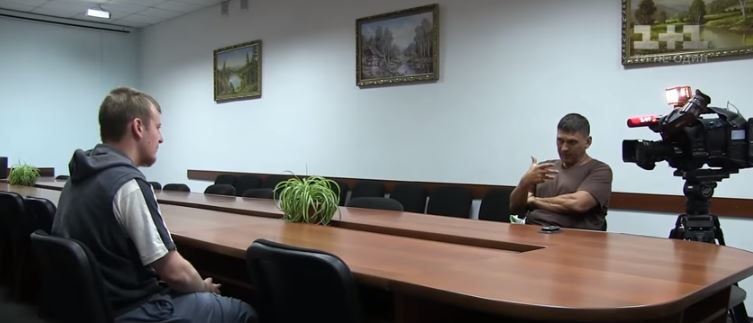
Your brigade commander, the fourth separate one [of the army of the "LNR" - Ed.] - he is also a Russian?
I do not know. I saw him only once. I don't even remember his face.
And the company commander is a Russian?
Maybe. But I had no close relationship with him. Only a statutory one. He worked somewhere in his office.
And, besides Alex, did you meet other guys from Russia who also got there on these "flights"?
Maybe in other divisions. But there weren't so many Russians in our company. I thought there would be more.
And were promised in your unit that you will be accepted to the 22nd Brigade when you return after the business trip to Ukraine?
Well, this is a completely different unit, it's a completely different structure.
Were you promised any kind of career advancement?
No. I don't even know.
You understand that this was a foolish act on your part - to agree to go somewhere to fight, not knowing where, not knowing what to do, under such conditions...
Perhaps, so, stupid.
But something prompted you to do this? Explain your motivation.
I told you already. I can't even explain now. It was probably some kind of patriotism.
I would understand some kind of excitement, that it's interesting to see war...
Well, seeing is one thing, but what if you get killed?
And what does patriotism have to do with this? Were you born here? Do you have relatives here? Or did you think that Donbas is part of Russia?
I believed that there are a lot of Russian people who are suffering from bombardments. As I heard on TV, they shoot here, bombard residential houses instead of militant positions.
What about the fact that the militias target the peaceful population, did not you hear about that?
I heard that the ceasefire, when there are orders not to shoot, is observed from the side of the militia [Russian-backed separatist forces of the "people's republics" - Ed], that they don't violate it.
I will tell you about observing the ceasefire. Yesterday and today we were in Pisky, this is near Donetsk. People are relaxed, took their armored vests off, and then the 120-mm shells come out of nowhere, and you don't know where to go.
(Silence).

Ageyev is by no means the first Russian soldier on active duty captured in Donbas. In May 2015, Ukrainian forces captured two Russian servicemen, GRU officer Evgenii Yerofeyev and Spetsnaz Sergeant Aleksandr Aleksandrov. Similarly, Moscow denied that the servicemen were on active duty, but admitted they were ex-Russian soldiers who went to Donbas voluntarily, but at the same time demanded Ukraine free the two captives. In May 2015, they were exchanged for Nadiya Savchenko, a Ukrainian pilot held on political motives and sentenced to 20 years in prison in a sham trial.
It is noteworthy that the myth of Ukrainian “fascists” reiterated by Russian propaganda is still being used to recruit Russians to fight in the Donbas. Two years ago, the Kyrgyz mercenary Manas told RFE/RL a very similar story. He came to fight supposed fascists, but after six months of warfare in Donbas, he found none and came back home.
Moscow continues to deny it is sending Russian soldiers to Donbas. However, open source researchers at Informnapalm have identified 75 Russian military units fighting in the war in Donbas, and Russian soldiers confirm being on active duty in Ukraine themselves.
Read more:
- Russian GRU officer captured in Ukraine: I thought they would kill me
- Misled by Russian propaganda on Ukrainian fascists, Kyrgyz mercenary leaves separatists ranks
- The story of a Russian soldier’s war in Ukraine: “We all knew what we had to do and what could happen”
- Donbas “separatists” got 33 types of military systems from Russia – report
- The 75 Russian military units at war in Ukraine
- Russia’s involvement in Donbas war open secret in Donetsk – France 24
- Suicidal. Russian military casualties in Ukraine
- Pskov councilman tells about Russian soldiers killed in Ukraine: “They weren’t just deceived – they were humiliated”
- Why Putin no longer conceals Russian casualties in Ukraine
- A Russian internet project is establishing identities of Russian soldiers KIA in Ukraine
- Russian soldiers fighting in Ukraine describe scale of Russian losses – “They’ve downed the whole company”


